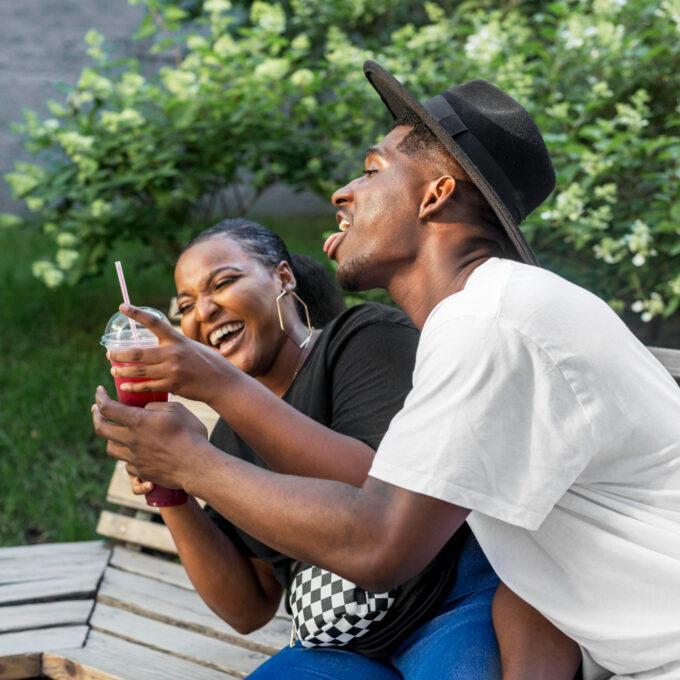5 Signs You May be in a Co-dependent Relationship

Authored by: Eden Carswell
Of all the kinds of toxic relationships out there, co-dependent ones have to be the most complex. More twisted than a Jordan Peele movie, co-dependent relationships are unique in that they’re rooted in fulfilling the needs of another, but in a very toxic way. Though one person gets the shorter end of the stick, both parties are part of the problem; co-dependent partners tether their self-esteem and purpose to being needed by others, putting in so much effort that they lose their identities and autonomy. Dependent partners take full advantage of this, receiving that care without giving any back and becoming reliant on it to function.
Trying to leave one of these is a daunting task. Co-dependent relationships touch every aspect a the couple’s lives, and the blurred lines between reality and the stupor that dependency puts them in make it Stevie Wonder difficult to even see that they’re in something co-dependent.
So how can you tell? How do you know if you’re in a co-dependent relationship?
Caretaking gets taken too far.
It’s healthy and natural to want to take care of your partner sometimes, doing acts of service and sweet things to show them love. However, taking the lyrics to “Cater 2 U” so far that it creates dependency is problematic. In co-dependent relationships, the caregiving partner often over-delivers on acts of service and emotional investment; they give more than the Salvation Army and become so focused on their partner’s well-being that their own mental, emotional, and physical health falls by the wayside. From cooking and cleaning to managing the aftermath of a partner’s destructive habits (substance abuse, gambling, etc.), the almost parent-like nurturing that takes place is way beyond the level most adults should get.
The relationship is priority number one… and two, and three.
If a relationship is healthy, it’s part of your life but not all of it. Family, friends, work, and alone time are necessary for being balanced, sane human beings. Co-dependent relationships take over like the bossy kid on a class project; the obsession with sacrificing for the relationship or receiving said pouring becomes so important to all parties involved that everything outside of it gets little to no TLC. This can culminate in the breakdown of familial and platonic relationships, as well as the loss of professional opportunities and assets.
You’re partner’s toxic, but you feel you can’t leave.
Co-dependent partners often want to leave their dependent partners because of the mistreatment, lack of fulfillment, and loss of identity they experience in these relationships. Unfortunately, the overwhelming obligation they feel, the belief that they can save or fix their dependent partners, and the anxiety of not knowing how to live or who they are without them traps leaves them held captive like a hostage. Even when loved ones try to help them realize they’re in a toxic relationship, that sense of duty and need to be needed have co-dependents spinning the block.
Feelings and desires don’t get expressed.
Volunteering as tribute in a co-dependent relationship can mean the co-dependent partner’s own feelings take a backseat. Because this dynamic is so one-sided, and the need to dote on the dependent partner is so strong, mental, emotional, physical, social, and even sexual desires go unmet. Holding back one’s feelings can mean resentment and loneliness building up over time as a result, making the conflict over leave the relationship even stronger.
You feel like you’re losing yourself.
Co-dependent relationships are consuming in every way, particularly for the co-dependent partner. Obsessing over their partner’s wants and needs causes a distortion of self; they lose sight of there interests, passions, and who they are deep down because so much of their time and energy is dedicated to fulfilling the needs of someone else. It’s one of the most concerning parts of co-dependency, something that still lingers and has to be worked on once the relationship ends.
There’s nothing romantic about being a martyr for your relationship or compulsively taking more than you’re giving. If your relationship feels or looks like this, don’t ignore the signs. Consider taking time to assess your partnership and decide if help from a mental health professional, some intentional alone time, or a breakup may be needed. Remember: Healthy love is balanced, reciprocal, equally fulfilling, and affirming. You deserve nothing less.
Featured Listings
What Their Social Media Says Before the First Date Even Starts
So you matched.You’re vibin’.Numbers were exchanged, the banter was smooth… and now...
Who’s Your Zodiac Match? The Stars Have the Tea
If you’ve ever blamed Mercury for your ex texting you or planned...
$50 or Less: The Art of the Vibe Check Date
I came across a post about the cost of dating for men,...
Pilates Is What Your Summer Body Needs—And It’s Giving Everything It Was Supposed to Give
Listen, I don’t know who needs to hear this, but that summer...














Leave a comment